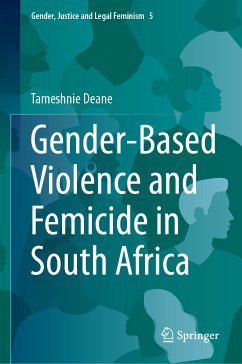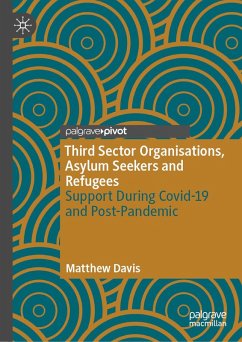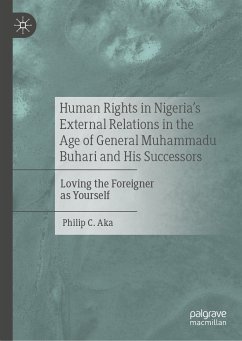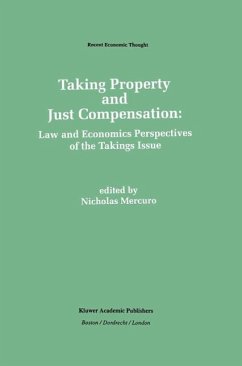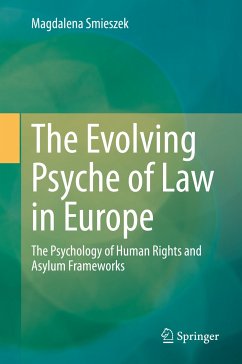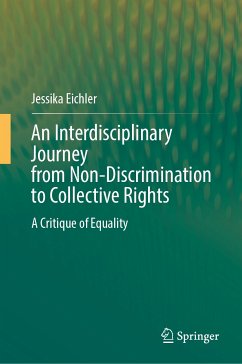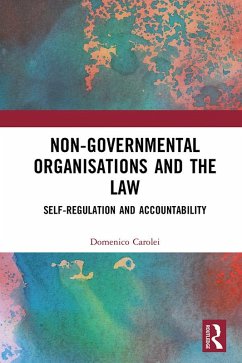
Refugees and the Law in Challenging Times - A Law and Economics Approach (eBook, PDF)
Versandkostenfrei!
Sofort per Download lieferbar
68,95 €
inkl. MwSt.
Weitere Ausgaben:

PAYBACK Punkte
34 °P sammeln!
This book focuses on the economic analysis of refugee law and the protection of refugee rights. It offers a law and economics model applied to migration and states. The book focuses on the most critical 'push' factors that impact lawmakers in enacting and modifying asylum law. Furthermore, the book examines the economic advantages and disadvantages of a centralized supernational asylum law (acquis communautaire) that could, eventually, eliminate competition between legal orders in asylum law and do away with the negative externalities caused by 'asylum shopping'.The book critically analyses in...
This book focuses on the economic analysis of refugee law and the protection of refugee rights. It offers a law and economics model applied to migration and states. The book focuses on the most critical 'push' factors that impact lawmakers in enacting and modifying asylum law. Furthermore, the book examines the economic advantages and disadvantages of a centralized supernational asylum law (acquis communautaire) that could, eventually, eliminate competition between legal orders in asylum law and do away with the negative externalities caused by 'asylum shopping'.
The book critically analyses international refugee law, pursuing an interdisciplinary approach. Its principal goal is to explore refugee law through the lenses of the law and economics approach and against the backdrop of a human rights approach. After explaining the evolution of the human rights approach, the book elaborates on the legal and economic factors that impact refugees, on the one hand, and public policy, on the other. In conclusion, a balance that considers the national preferences of destination countries and the protection of refugee rights is proposed.
The book critically analyses international refugee law, pursuing an interdisciplinary approach. Its principal goal is to explore refugee law through the lenses of the law and economics approach and against the backdrop of a human rights approach. After explaining the evolution of the human rights approach, the book elaborates on the legal and economic factors that impact refugees, on the one hand, and public policy, on the other. In conclusion, a balance that considers the national preferences of destination countries and the protection of refugee rights is proposed.
Dieser Download kann aus rechtlichen Gründen nur mit Rechnungsadresse in A, B, BG, CY, CZ, D, DK, EW, E, FIN, F, GR, HR, H, IRL, I, LT, L, LR, M, NL, PL, P, R, S, SLO, SK ausgeliefert werden.



